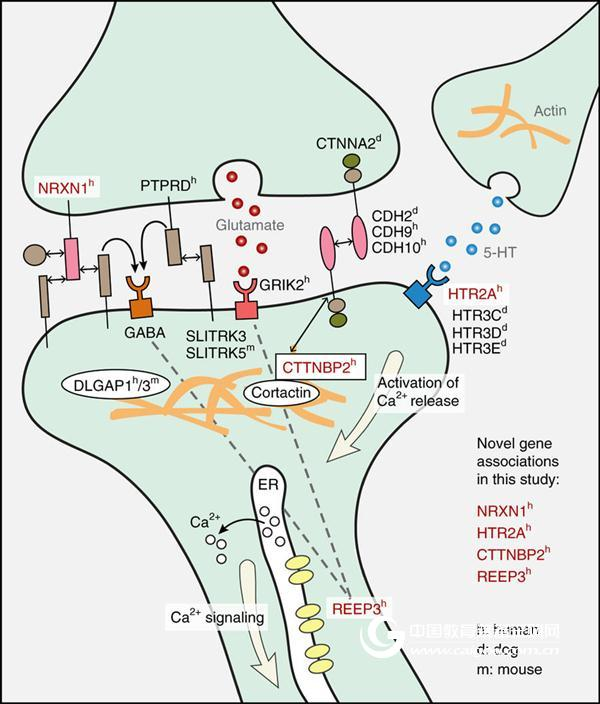Guide Recently, a study published in Nature Communications found four genes related to obsessive-compulsive disorder, which are related to the function of synapses, and the brain's neural circuits lead to obsessive-compulsive behavior. There may be people like you around you: always feel that you have forgotten to lock up, and you have to go home and confirm it once; it is not clean enough to wash your hands over and over again; the examination of a topic repeatedly checks to be inefficient. These people are not necessarily "virgos", they may have "obsessive-compulsive disorder" (OCD). In most people's eyes, obsessive-compulsive disorder may be more like a mental illness, but in fact, there is still a neurobiological basis behind this disease. At present, the most adequate biological study for obsessive-compulsive disorder is the serotonin, a neurotransmitter. The concentration of serotonin in the brain of patients with obsessive-compulsive disorder is generally lower than that of normal people. Studies have shown that in some cases, the use of drugs that increase serotonin levels will have some therapeutic effects. Previous studies have also shown that obsessive-compulsive disorder is likely to be a heritable disease. Some scientists are trying to find genes that might cause this disease to support this theory. Recently, an international research team discovered four genes related to obsessive-compulsive disorder. The team described their methods for finding genes related to obsessive-compulsive disorder and their findings. The researchers first sequenced 608 genes that might be involved in human, dog, and mouse obsessive-compulsive disorder. Then, 592 patients diagnosed with obsessive-compulsive disorder and 560 healthy controls were compared for genetic samples. After careful screening, four genes highly associated with obsessive-compulsive disorder, NRXN1, HTR2A, CTTNBP2, and REEP3, were identified. Four candidate genes (red) are involved in synaptic function and interact with obsessive-compulsive-related proteins Previous studies have found that these four genes play an important role in the construction of brain circuits in the thalamus, striatum and cortical regions. This is especially noteworthy because the striatum plays a role in the learning process and transmits information to the cerebral cortex through the thalamus, which is where decisions are made. The researchers believe that the mutated gene may lead to serotonin above or below normal levels, which may lead to disruption of information during neural communication, thereby inducing symptoms of obsessive-compulsive disorder. Shanghai Chuangsai Technology has excellent performance, interleukin cytokines, fetal bovine serum, electrophoresis equipment scientific instruments, raw material drug standards, chemical reagents, cell culture consumables, Shanghai Chuangsai, mass products special promotions, welcome to inquire! Glutathione And Vitamin C,L Glutathione And Vitamin C,Vitamin C Injection,Vitamin C Ascorbic Acid Shijiazhuang Asa Technology Co., Ltd. , https://www.asaantiwrinkle.com
May 24, 2023